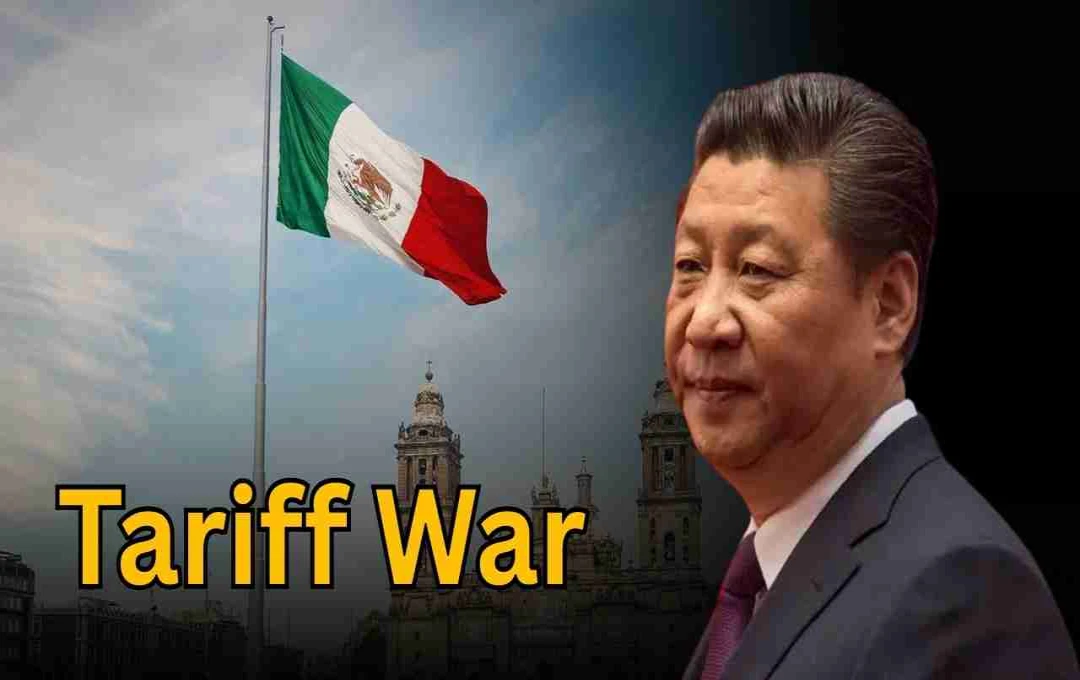Mexico has decided to increase tariffs on goods imported from China under pressure from the United States. This proposal will be included in the 2026 budget and will affect products like cars, textiles, and plastics. The move aims to support domestic industries, reduce American pressure, and increase government revenue.
Tariff War: According to a Bloomberg report, President Claudia Sheinbaum's government has proposed imposing heavy tariffs on goods imported from China in the 2026 budget. This step is considered a result of pressure from the United States, as former President Donald Trump has long been demanding a ban on cheap Chinese goods from Mexico. Sectors like cars, textiles, and plastics could be affected. This will not only protect domestic industries but also increase the income of the Mexican government and strengthen US-Mexico trade relations.
Proposal to be included in the 2026 Budget
Sources indicate that this proposal will be included in the 2026 budget, which is to be presented to Parliament by September 8. This budget includes a provision for imposing higher taxes on goods imported from China. The impact of these tariffs could be particularly visible on products such as cars, textiles, and plastics. However, the extent to which the rates will be increased is not yet clear.
Move Linked to the "Fortress North America" Plan

The United States, Mexico, and Canada are jointly working on a plan called "Fortress North America." Its objective is to strengthen the mutual economic power of these three countries and reduce dependence on China. Under this plan, products coming from China will be limited to support domestic industries.
Chinese subsidized products have increased pressure on Mexico's local industries. Small and medium-sized industries, in particular, are falling behind in competition due to the lower prices of Chinese goods. With increased tariffs, it is hoped that domestic industries will get relief and an opportunity to survive in the market.
A Blow to Chinese Car Companies
This year, Mexico has emerged as the largest buyer of Chinese vehicles. However, if tariffs increase, it could prove to be a major blow to Chinese auto companies. Cheap Chinese cars will no longer be able to garner the same demand in the Mexican market as before. This is likely to benefit local car manufacturing companies.
Relief for the United States
The United States has long feared that Chinese products were entering its market through Mexico. If Mexico increases taxes on China, this concern for the US will be significantly reduced. According to a Bloomberg report, Washington is pleased with this decision and considers it a major diplomatic victory for itself.
The new tariffs will increase the revenue of the Mexican government. The revenue generated from additional taxes will help the government bridge its budget deficit. This money can also be invested in public projects and infrastructure development.
Preparation to Increase Investment through "Plan Mexico"

The government is increasing investment in industrial parks and public projects through a plan called "Plan Mexico." Its aim is to promote domestic industries and attract foreign investors. Increased tariffs will help strengthen this plan as they will provide protection to local industries.
Proposal to be Passed Easily in Parliament
From a political perspective, President Claudia Sheinbaum's party holds a two-thirds majority in Parliament. Therefore, there will be no major hurdles in passing this proposal. Analysts believe that the government can implement this decision quickly.
Impact on US-Mexico Agreement
Next year, the United States and Mexico will review their free-trade deal. In this context, this move could facilitate negotiations. The US already wants Mexico to take strict action against China. If tariffs are implemented, relations between Washington and Mexico City could become even ber.














